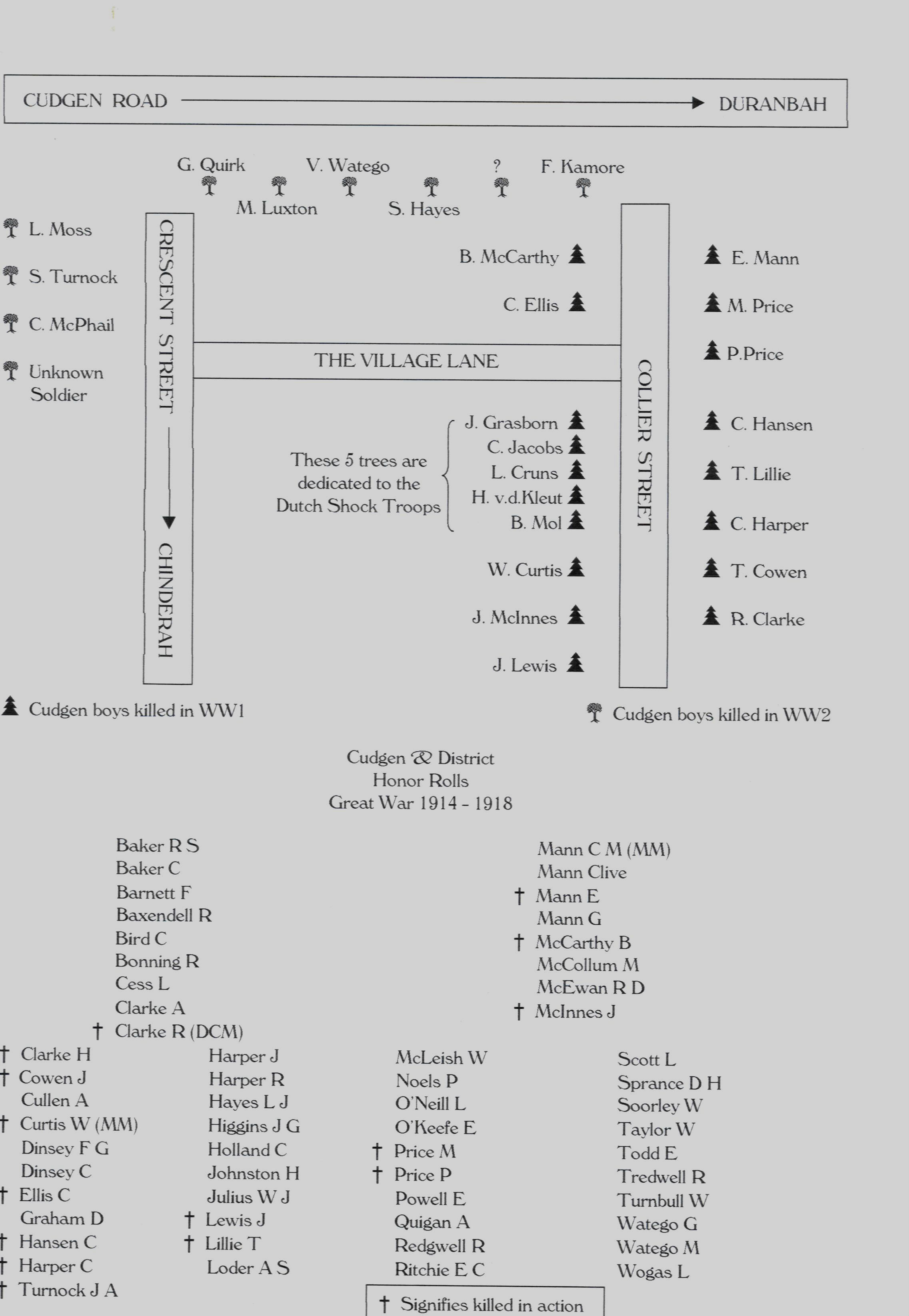|
The Two World Wars
A view from Cudgen/Kingscliff that is both sad and attractive, the 16 Norfolk Pines and the 8 Weeping Figs, planted in the village of Cudgen. They were planted as a sign of respect from the community and were dedicated to those men who had fallen during the World Wars.
Due to the war, high-spirits brought about the merging of the local community as a whole. The men who stayed back, produced the necessary foods for the nation and the women formed the first Red Cross parcels for the soldiers overseas, in WWI. This activity was to be mirrored again with the outbreak of WWII.
An extraordinary high number of the local lads were taken prisoner in such areas as Singapore, Ambon and Sumerkard. With many men losing their lives to protect our country.
In 1943 the hospital ship "centaur", left from Point Danger on its proposed journey for New Guinea.It sunk within the vision of the light on Moreton Bay. The mercy vessel, Australia's latest addition, was torpedoed by a Japanese submarine 1-177 and 268 people were taken to the bottom of the ocean. 64 people survived the attack.Passengers on the ship felt safe aboard a hospital ship as it was international law that they were to be protected.
One of the very many brave men to return was Corporal J.D Korsch on October 9 1945. He had returned to a grand welcoming at Cudgen from a prison camp in Siam (Thailand).The community hosted a "welcome home" celebration for the returned servicemen.
The office bearers at the time were:
President: R. Price
Vice Presidents: E.Walsh and W.Dinsey
Hon. Secretary: Mr. C. McPhail
Hon. Treasurer: Mr. M. Turnock
The main social evening coincided with giving out certificates, which were presented to the servicemen next of kin.
While the men were away,special picnic days were planned,which involved all the races within the community, the white, South Sea Islander and Aboriginal families.They travelled out to the Kingscliff Hill(Cudgen Headland) for family festivities.
The Kingscliff area has been represented by locals in the following theatres of war:
- Malaysia
- Korea
- Vietnam
- East Timor

|


